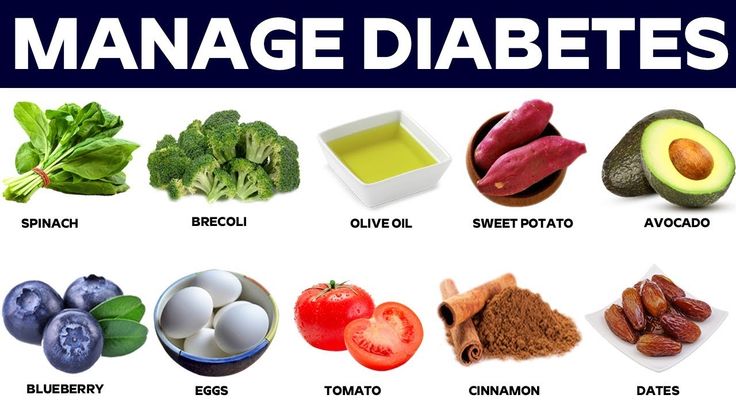Keto Meals for Diabetes Management: Best Low-Carb Recipes to Control Blood Sugar Naturally

Managing diabetes can feel overwhelming, but the right food choices make a world of difference. A well-planned ketogenic (keto) diet can stabilize blood sugar, reduce insulin resistance, and improve energy. For people in the USA, Canada, and parts of Europe where diabetes is on the rise, keto meals have become a popular lifestyle shift. In this detailed guide, we’ll explore delicious low-carb recipes, practical meal planning strategies, and the health benefits of keto for diabetes management.
Why Choose Keto for Diabetes Management?
Keto meals emphasize low-carb, moderate protein, and high-healthy-fat eating. By reducing carbohydrate intake, your body burns fat for fuel instead of sugar. This metabolic switch, called ketosis, helps regulate blood sugar and minimizes spikes. For people with Type 2 diabetes, this approach can be life-changing.
Read Also Keto Diet for Type 1 Diabetes: A Step-by-Step Plan for Stable Blood Sugar Levels
Understanding the Link Between Carbs and Blood Sugar
Carbohydrates break down into glucose, directly affecting blood sugar levels. High-carb meals often lead to dangerous spikes, forcing your pancreas to release more insulin. Over time, this increases insulin resistance—a core issue in Type 2 diabetes. Keto cuts carbs significantly, giving your body a break from constant sugar surges.
Health Benefits of Keto Meals for Diabetics
- Stabilized Blood Sugar: Reduces sudden highs and lows.
- Weight Loss Support: Encourages fat-burning and curbs cravings.
- Improved Insulin Sensitivity: Helps cells absorb glucose more efficiently.
- Lower Risk of Heart Disease: Reduces triglycerides and improves HDL cholesterol.
- Sustained Energy: Keeps fatigue and mood swings at bay.
Is Keto Safe for People with Diabetes?
Doctors often recommend a keto diet with careful supervision, especially if you’re on insulin or blood sugar medication. Always consult your healthcare provider before making major dietary changes. For many, keto offers an effective alternative to traditional “low-fat” diabetes diets.
Foods to Include in a Diabetic-Friendly Keto Diet
- Protein: Grass-fed beef, chicken, turkey, salmon, sardines.
- Healthy Fats: Avocado, olive oil, coconut oil, nuts, seeds.
- Low-Carb Vegetables: Spinach, broccoli, cauliflower, zucchini.
- Dairy (in moderation): Cheese, butter, Greek yogurt.
- Beverages: Water, herbal tea, unsweetened almond milk.
Foods to Avoid for Stable Blood Sugar
- Sugary foods (cakes, soda, candy).
- Grains (bread, rice, pasta).
- Starchy vegetables (potatoes, corn).
- Processed foods with hidden sugars.
- Artificial sweeteners that spike insulin.
7-Day Keto Meal Plan for Diabetes Management
Here’s a sample plan to make things easy:
| Day | Breakfast | Lunch | Dinner |
|---|---|---|---|
| 1 | Avocado & Eggs | Grilled Chicken Salad | Salmon with Asparagus |
| 2 | Keto Smoothie | Turkey Lettuce Wraps | Beef Stir Fry |
| 3 | Cheese Omelet | Cauliflower Fried Rice | Grilled Shrimp with Zoodles |
| 4 | Chia Seed Pudding | Bunless Burger | Chicken Alfredo with Zucchini |
| 5 | Greek Yogurt with Nuts | Egg Salad | Pork Chops & Broccoli |
| 6 | Scrambled Eggs & Spinach | Keto Pizza | Garlic Butter Steak |
| 7 | Almond Flour Pancakes | Tuna Salad | Roast Chicken with Cauliflower Mash |
Delicious Keto Recipes for Diabetics
1. Keto Cauliflower Fried Rice
- Ingredients: Cauliflower rice, eggs, chicken, sesame oil, soy sauce.
- Benefits: A rice alternative that won’t spike blood sugar.
2. Garlic Butter Salmon with Spinach
- Ingredients: Salmon fillet, garlic, butter, spinach.
- Benefits: Omega-3 rich for heart health and anti-inflammation.
3. Zucchini Noodles with Alfredo Sauce
- Ingredients: Zucchini spirals, cream, Parmesan, chicken breast.
- Benefits: Pasta replacement that is light yet satisfying.
Tips for Eating Out on a Keto Diabetic Diet
- Choose grilled proteins instead of breaded.
- Ask for extra veggies instead of fries.
- Skip sugary sauces—opt for olive oil or vinaigrette.
- Watch out for hidden carbs in soups and dressings.
Common Mistakes to Avoid on Keto
- Eating too much protein (can convert into glucose).
- Ignoring electrolytes (sodium, magnesium, potassium).
- Overusing artificial sweeteners.
- Skipping vegetables for “zero-carb” junk food.
Supplements That Support Keto and Diabetes
- Magnesium: Helps regulate blood sugar.
- Omega-3s: Supports heart and brain health.
- Vitamin D: Improves insulin sensitivity.
- Electrolytes: Prevents keto flu symptoms.
Long-Term Sustainability: Can You Stay on Keto Forever?
While strict keto can be challenging, many adapt it into a “low-carb lifestyle” instead of a temporary diet. Cycling in healthy carbs occasionally may help maintain balance without losing the benefits.
Keto vs. Other Diabetes Diets
| Diet Type | Carbs | Pros | Cons |
|---|---|---|---|
| Keto | Very low | Fast results, stable sugar | Hard to sustain |
| Low-GI | Moderate | Flexible | May not lower blood sugar enough |
| Mediterranean | Balanced | Heart healthy | Slower weight loss |
| DASH | Moderate | Blood pressure control | Higher carb intake |
Exercise and Keto for Diabetes
Pairing keto with light exercise—walking, swimming, or weight training—improves insulin sensitivity and burns fat faster. Always check blood sugar before and after workouts.
Mental and Emotional Benefits of Keto
Beyond physical health, keto can reduce anxiety caused by unstable blood sugar. Many report better sleep, focus, and emotional stability after switching to low-carb meals.
Final Thoughts
Keto meals for diabetes management aren’t just about cutting carbs—they’re about gaining control over your health. With the right balance of nutrition, recipes, and planning, you can stabilize blood sugar, lose weight, and live with more energy. Whether you’re in the USA, Canada, or Europe, keto could be your game-changer.
Read Also How to Use Ketones to Lose Weight: The Complete Free Guide
FAQs
1. Can keto reverse Type 2 diabetes?
Not exactly, but it can put diabetes into remission by lowering insulin resistance and stabilizing blood sugar.
2. Is keto safe for people with Type 1 diabetes?
It requires close medical supervision. Type 1 diabetics should not attempt keto without professional guidance.
3. How quickly will I see results on keto for diabetes?
Many notice improvements in 2–4 weeks, but long-term consistency is key.
4. Can I do keto if I’m vegetarian or vegan?
Yes—focus on plant-based fats, nuts, seeds, tofu, and low-carb veggies.
5. Do I need to track carbs on keto?
Absolutely. Tracking ensures you stay within 20–50 grams per day for ketosis and blood sugar stability.




